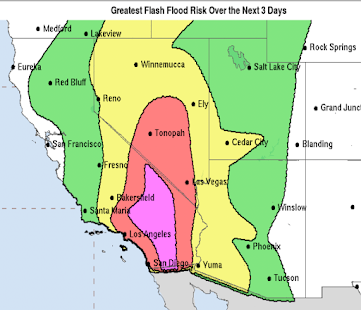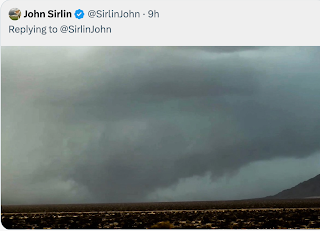Washington Post's Discussion of Tornado False Alarms
In Warnings: The True Story of How Science Tamed the Weather I discuss how meteorology really needs to work to get the false alarm rate down.
Little did I know when I wrote Warnings that false alarms would play a role in the worst tornado disaster in six decades -- Joplin. I cover the role of false alarms and "siren fatigue" in When the Sirens Were Silent.
Yesterday, the Washington Post's Capital Weather Gang posted a provocative discussion on the topic of false tornado alarms in the MD-DC area Friday.
I was watching those storms and tweeting about them. In this case, I have considerable empathy for the NWS office in Sterling. There were several storms with nice hook echoes and rotation that I would have warned on that did not produce tornadoes. Even after the fact, we cannot explain why.
There are two types of false alarms when it comes to tornadoes:
Little did I know when I wrote Warnings that false alarms would play a role in the worst tornado disaster in six decades -- Joplin. I cover the role of false alarms and "siren fatigue" in When the Sirens Were Silent.
Yesterday, the Washington Post's Capital Weather Gang posted a provocative discussion on the topic of false tornado alarms in the MD-DC area Friday.
I was watching those storms and tweeting about them. In this case, I have considerable empathy for the NWS office in Sterling. There were several storms with nice hook echoes and rotation that I would have warned on that did not produce tornadoes. Even after the fact, we cannot explain why.
There are two types of false alarms when it comes to tornadoes:
- Unavoidable false alarms, like Friday's, occur when Mother Nature creates a situation where a tornado seems very likely but doesn't occur. Our science, as yet, can't explain these.
- Unnecessary false alarms such as intentionally activating warning sirens in areas not included in a warning because of "policy" or other reasons.
I would like to see efforts made by the research community to allow us to better differentiate imposters from genuine tornado-producing thunderstorms.
And, I recommend that emergency managers stop sounding sirens in areas that are not included in storm warnings.




I don't think the "unavoidable" type are really false alarms. The fact is that a majority of the people inside the polygon of a tornado warning don't get hit by a tornado even when there is a tornado associated with the warning. But because we can't predict the path precisely, we have to include a wide enough area that we know most of the area won't actually be hit.
ReplyDeleteI keep coming back to the Russian Roulette analogy. If the forecaster can tell the people at a particular location "You have a 1/6 chance of being hit by a tornado in the next half hour", no one in their right mind would call it a "false alarm" if that location was not hit. Nor would anyone in their right mind say "since it's unlikely I'll be hit, I don't need to take shelter" any more than they'd put the revolver with "only" one bullet in it to their head and pull the trigger.
Whether the 5/6 chance is due to the inability to predict the exact path of a tornado once it forms, or to predict whether the tornado does form is irrelevant to the person receiving the warning.
Yes, improving the science would help, but unless and until we can make deterministic predictions out of a fundamentally chaotic situation, there will never be perfect prediction. There will only be more bullets in the gun.